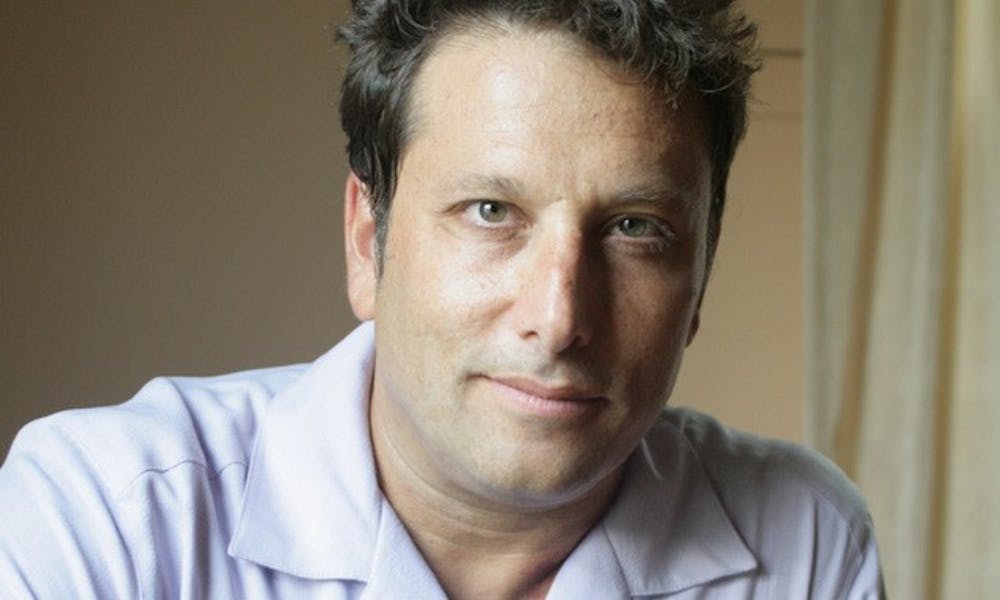Full Frame may be a documentary film festival, but “documentary” hardly covers all that Rodrigo Dorfman does.
Generation Exile, a film that Dorfman, Trinity ’89, both wrote and directed, has its world premiere today as a part of Full Frame. The work refracts his own experience as an exile and multinational through the stories of four women in flux.
Rodrigo uses the four very different perspectives—that of a Taiwanese pianist, an Afro-Caribbean Whirling Dervish, a Latina artist and an American woman confronting spiritual abuse—to comment on his own life and the lives of his family, forced out of Chile in 1973 due to the activities of his father Ariel Dorfman, Walter Hines Page Research professor of Literature and Latin American Studies in the Center for International Studies.
Rodrigo said he recognized the need to tell a good story, but at the same time he wanted to find new ways of expressing his narrative that didn’t fit one particular format.
“One of the ways that I try to describe [Generation Exile] is ‘fictionary,’” he said. “As in, it’s fiction and it’s documentary at the same time. Because to me, this whole discussion about what is real—is documentary more real than fiction and vice versa—to me what really matters is that the emotion is real. Then it’s a good story regardless of how you tell it.”
Aside from their status as exiles, the four women shared something else: they were all friends of Rodrigo.
“They all reflect a different aspect of my journey,” Rodrigo said. “My understanding was that I couldn’t just tell my journey about myself. I needed to have other people reflect different stages of my own journey, and to amplify it and to echo it.”
Generation Exile also includes footage from two spiritually oriented projects Rodrigo attempted earlier: a documentary about the American Sufi, which saw the dissolution of its subject community and never reached completion, and a film called Gnawa Stories, in which he became the first Western journalist ever given access to an isolated group of Moroccan mystics.
This explicit spirituality is an area in which Rodrigo’s work differs in focus from that of his father’s.
“I’ve always been very spiritual but not overtly so,” Ariel said. “He’s the first member of the family that engages in this sort of overtly spiritual quest.”
The two have long collaborated on artistic efforts, often with Rodrigo working as Ariel’s dramaturg, and Ariel said the strengths of each complement the other well.
“We’ve won major awards as screenwriters together, but he has a visual style which I—I almost have a sickness in a sense, I’m almost unable to imagine anything except in words,” Ariel said. “So even if we co-directed a short film together, it’s really Rodrigo’s, and I think that what’s most interesting about my work with him... is that none of it is territorial. And just as he renews me with a vitality that he’s got, I think I renew him and the other son [author and filmmaker Joaquin] with a certain knowledge of writing and of how you tell stories.”
Although Generation Exile does largely tell a story of displacement and transience, Rodrigo said it is also about finding your home. And as an alumnus of Duke, a former member of the Full Frame selection committee and now a participating filmmaker, both the festival and the town represent a distinct home for him.
“This is the place where I’ve lived the longest my whole life consecutively, this is where I’ve raised my children, and in many ways you need a community in order to create,” Rodrigo said. “Part of what I create is due to the community of Durham and of course of Duke University, which has always been helping me and sustaining me and opening the doors.”
Generation Exile will screen today at 4:40 p.m. in Cinema Four.
Get The Chronicle straight to your inbox
Signup for our weekly newsletter. Cancel at any time.

